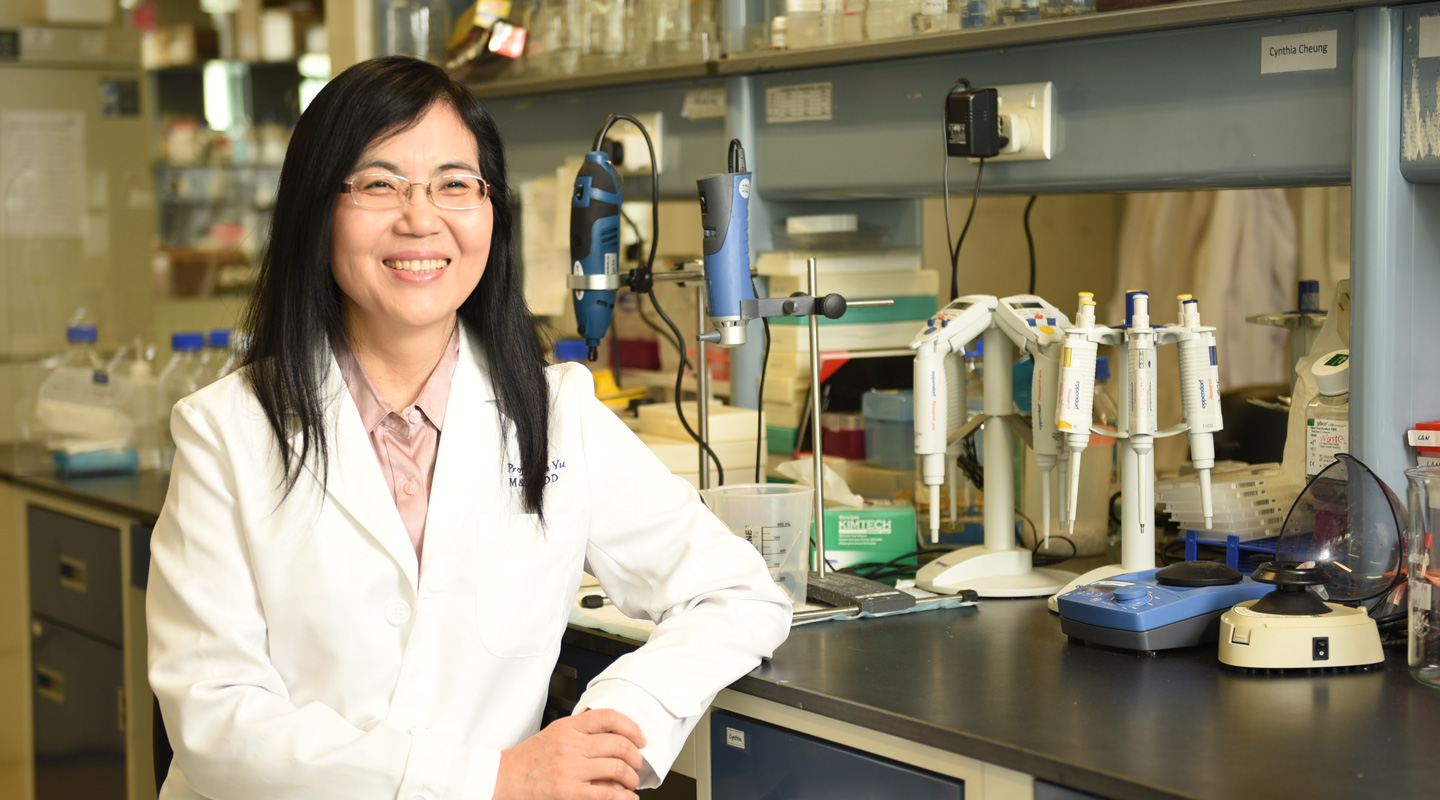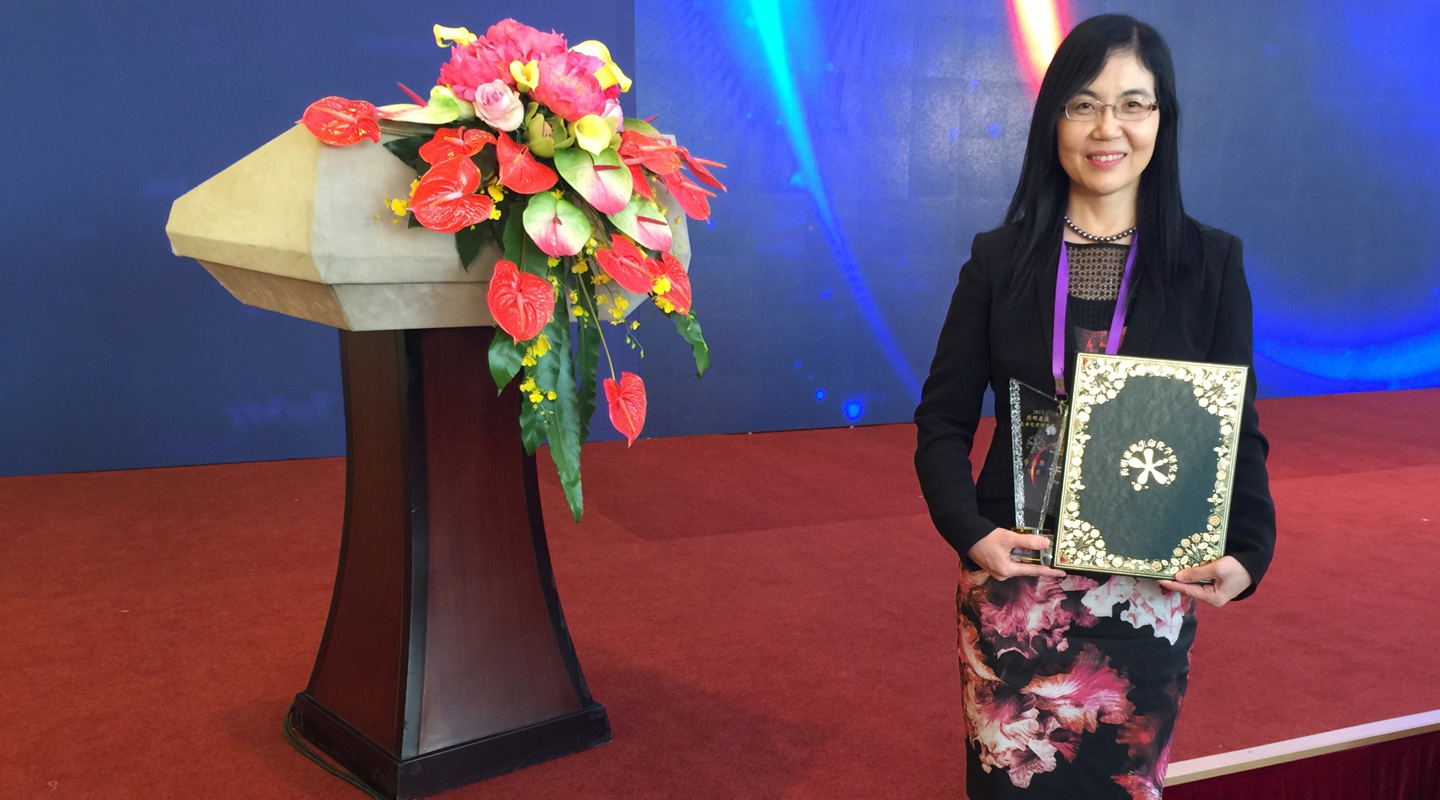Yu Jun Takes on Colon Cancer

Prof. Yu Jun
- Professor in the Department of Medicine and Therapeutics
- Three-time first-class award winner of Higher Education Outstanding Scientific Research Output Award from the Ministry of Education
- Three-time project/team award winner of State Science and Technology Award
- Croucher Senior Research Fellowship 2016
- American Gastroenterology Association Council Gastrointestinal Oncology Section Research Mentor Award 2017
- Scholar Award of the 11th WuXi PharmaTech Life Science and Chemistry Awards 2017
What does winning awards mean to you?
The awards are a result of the hard work of our research team and the honours go to our team members. It’s Prof. Joseph J.Y. Sung who made a lot of effort to build this talented team. I am just one of the members and received the awards on behalf of the team. Being so honoured is not only a recognition of and encouragement to our research, but also spurs us on to continue striving for excellence.
What made you switch from doctoring to research and why hepatology and gastroenterology?
Upon graduation from Hebei Medical University, I stayed there and worked for two years. I then went to Tongji Medical University to pursue a clinical doctoral and spent the time mostly in consultation, case discussion and operating medical devices like the endoscope. Research was only carried out in the off-hours. I was going to make a career out of doctoring. In 1998, I went to Germany as a postdoctoral fellow. Under the guidance of my advisor, my interest in research grew.
As both my PhD advisor and my advisor in Germany are specialists in gastroenterology, it’s natural for me to follow the path. That said, gastroenterology covers the vast tract from the oesophagus to the rectum, and gastric, bowel and liver cancers account for about 40% of all local malignancies.
What is the biggest satisfaction from research?
The biggest satisfaction of research comes from nurturing a group of talented researchers. They laid a solid foundation of doing research at CUHK, published papers, and won international awards. Some of them took up key positions in research and medical organizations both locally and overseas and continue their research or treat patients for the benefits of society.
I am personally gratified at identifying two markers that can be used to assess the risk of developing colon cancer. We’re planning to carry out clinical trials in order to develop an affordable and convenient detection kit.

You have conducted research on the mainland, in Germany, Australia and Hong Kong. Is the experience the same everywhere?
As a postgraduate student on the mainland, I only did as my advisor instructed. The Germans pay attention to every detail and wouldn’t settle for anything less than excellence itself. The experience in Germany not only strengthened my basic scientific training but also cultivated in me a serious attitude towards everything. Furthermore, the design and set-up of the lab there never leave the human being out. The clean and the contaminated zones, for example, and the office and the lab are clearly demarcated. Australia is outstanding for its use of lab animals. My English improved a lot there, too. With its fast tempo and high efficiency, Hong Kong is closer to the West.
You said you’re a matchmaker for your postgraduate students and research team members. Why is it?
I noticed that researchers usually immerse themselves so much in work that their social life and circle are limited. When they get older and want company, it might be difficult for them to meet someone let alone the better half. That’s why I always encourage my research team members to meet new friends. I’ll also keep an eye for them for perfect matches. I have successfully introduced four couples. With this track record some of my team members may ask me to meet their friends and listen to what I say.
What’s your impression of CUHK students?
Most of the students I meet are either postgraduate students or postdoctoral fellows. They all have a good command of English, talented, disciplined and putting everything into what they do. I always think it’s a pity that not too many local students study for a PhD. I very much hope that more will join us in future.
What is your advice for students who want to maintain a balance between research output and family life?
A happy home makes a productive lab. Family and work can support each other and form a virtuous cycle. Young researchers should always free some time to do something with their families together, e.g., dining, shopping, chatting and travelling.
This article was originally published in No. 514, Newsletter in Mar 2018.

